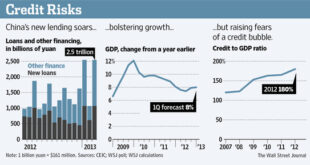Online finance has boomed in China over the last year and a half. It started with mutual funds accessible to average citizens, offered by Alibaba, Baidu, and Tencent. Then, a surge in peer-to-peer lending took hold because – like the mutual funds – they also lowered the barrier for individuals to secure personal loans in China. And now a new wave of finance tech is taking hold: wealth management and investment apps. According to iResearch, 21 new finance apps launched in China between June 2013 and June 2014, and over double the number of people are using them.
Almost 20 financial services startups secured funding in September alone, according to tech investment tracking site ITJuzi. Most of them were either P2P lending or investment startups. Remember that P2P lending isn’t just for the borrowers – it can be a good investment for the savvy amateur lender. Wealth management and investment apps are of particular interest because of what’s going on in China’s stock exchanges. A recently revealed change of rules will, for the first time, allow Chinese investors to buy shares on the Hong Kong stock exchange. In addition, overseas investors will be able to trade on the Shanghai stock exchange.
The program is currently in testing and could go live as soon as this month. As a result, several wealth management and investment apps are eyeing new opportunities to either act as middlemen between users and brokers, or in some cases even become brokers themselves. Users in China will soon be able to trade Hong Kong stocks on their smartphones, and the app makers stand to gain from commissions. Investors have been quick to seize the opportunity, dumping fresh cash on several such startups. Hong Kong-based 8 Securities received a US$9 million series B round from Velocity Capital and Leitmotiv Private Equity, Snowball received a US$40 million series C round from Renren, and Tongbanjie received nearly US$50 million in series B funding from Legend Capital. Qianshengqian, Road Show China, and Zhongtou 8 have all secured series A rounds.
Prior to the rule change, some of these startups mainly focused on creating a social atmosphere for investors, providing information, and setting up mock exchanges. Actual investing was limited to mutual funds and domestic exchanges, which are much less transparent and less attractive to non-professional investors compared to international exchanges like Hong Kong’s. Allowing international investors into China and Chinese investors into the rest of the world presents a huge opportunity for laymen investors and the startups that serve them.
TechInAsia
 Asia Finance News Asia finance news, banking, market analysis, business, Forex, trade, Cryptocurrency as it is happening in Asia. Trusted gateway for Asian financial news.
Asia Finance News Asia finance news, banking, market analysis, business, Forex, trade, Cryptocurrency as it is happening in Asia. Trusted gateway for Asian financial news.





